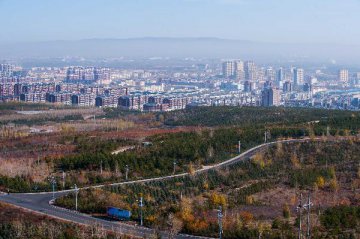
Chinese listed firms in traditional and emerging industries posted diverging results for 2015 as the country shifts its economic gears in the face of continued slowdown.
As of Monday, 104 out of 1,303 companies had reported losses for last year, with over 70 percent of them in manufacturing and the remainder mainly in property and extractive industries, according to data from eastmoney.com, a financial data website.
Twelve of them, including industrial giants in steel smelting and coal mining, witnessed huge losses exceeding 1 billion yuan (154.65 million U.S. dollars). Chongqing Iron & Steel Company suffered the most, swallowing a loss of nearly 6 billion. The lackluster performance by publicly traded companies shows the struggle traditional heavy industries face amid sagging global economic recovery and domestic industrial overhaul. Squeezed by excess production and shrinking demand, factories are still confronted with major challenges.
Shen Meng, executive director of Chanson Capital, a boutique investment bank, said companies with losses will have a hard time reversing the situation in the short term as demand remains weak and more time is needed to explore new markets. "Given an ongoing shift in economic engines and flagging domestic and overseas demand, companies in traditional sectors have to step up their transformation and improve the added value of their products to survive," Shen said.
While the sluggish growth bit into the profits of heavy industries, firms in emerging and high-tech sectors told a different story. China's largest new energy vehicle (NEV) maker BYD raked in 2.83 billion yuan in net profits in 2015, up more than 550 percent year on year. Helped by government support ranging from subsidies to tax breaks, the NEV sector boomed last year as annual production quadrupled to 379,000.
A majority of growth and high-tech companies have also reported stellar growth for 2015, including those in new energy, medicine and information technology.
The China Enterprise Management Science Foundation said in an early report that sectors including robotics and intelligent equipment will continue to outpace traditional industries.
To arrest the economic slowdown, China is restructuring its industries to sustain growth, encouraging new sectors and reforming the old. Emerging industries, such as robotics, intelligent equipment, drones and high-speed railways, are becoming China's new economic engines, analysts said.
"Burgeoning new industries will revitalize the Chinese economy in the long run," said Song Kun, fund manager of E Fund Management Co. The output of emerging industries is expected to account for 15 percent of GDP by 2020, up from the current 8 percent.
More than 1,300 companies traded on the Shanghai and Shenzhen bourses have released their annual reports, nearly two-thirds of which saw profits increase.




















Latest comments